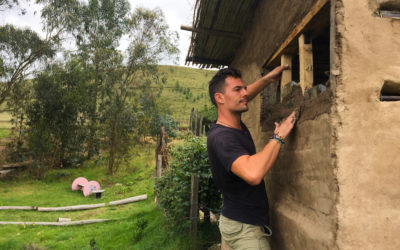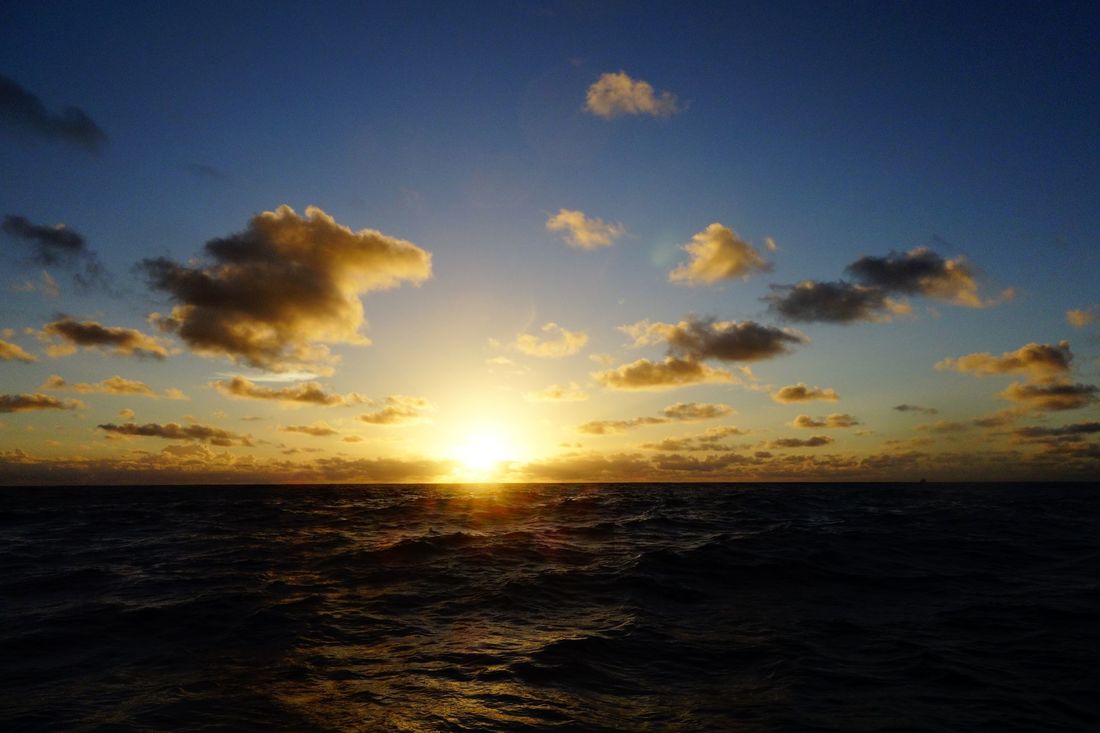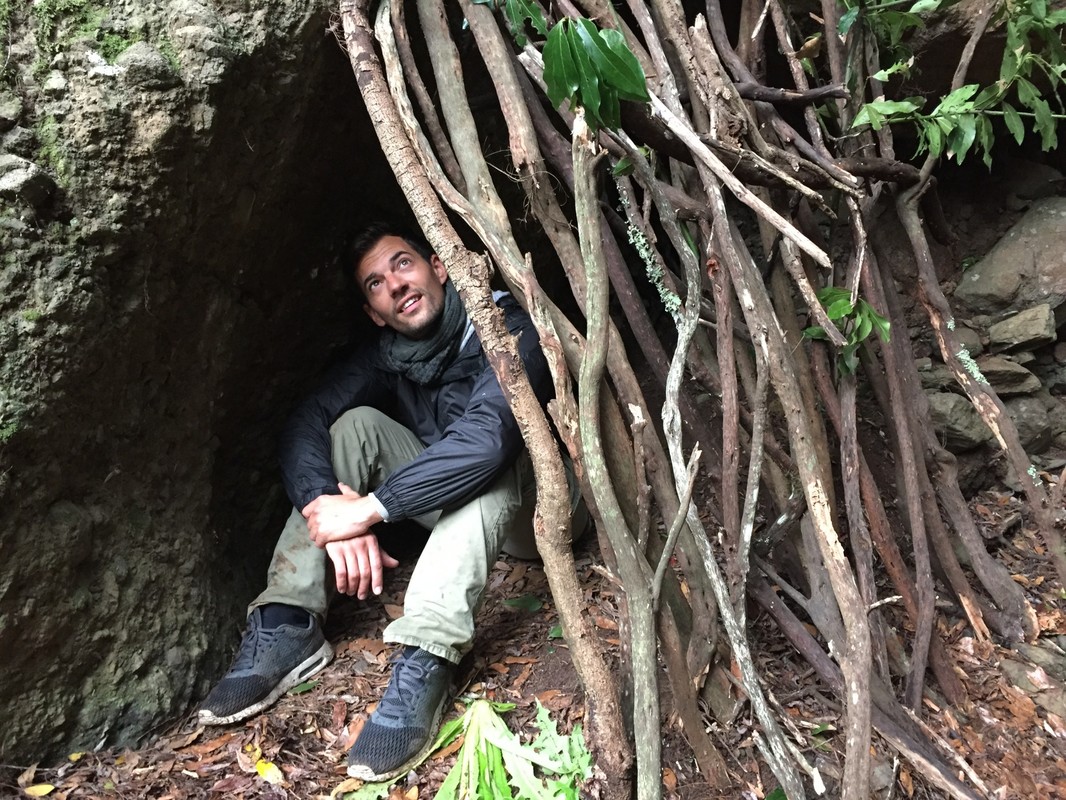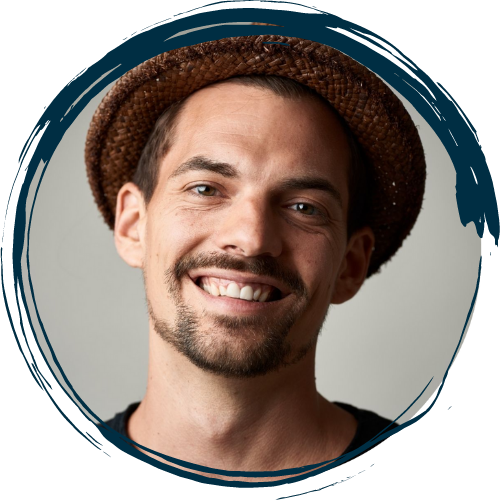Vision
„I want to help the poor communities in Perú and make their lives better by promoting and selling the precious agricultural products they harvest. Musgo is one of them – a high-class type of moss, that grows in the rural areas of the Andes, farmed by these communities. I will grow my company into a worldwide player in the Musgo market to be able to reach more people in need and work with them.“
On first steps
„Don’t let fear paralyze you and don’t get lost in ideas. Don’t search for perfection – the way itself is perfection and you will find and learn what you need while you’re hiking it. Just take the first step and start walking.”
About
supports poor communities by promoting and exporting their precious moss
I got introduced to Marco via e-mail by Guillermo Zarate, who I interviewed in Quito, Ecuador, about his game changing company Cuestionarix. Guillermo just said: “You got to meet Marco and his company Inkamoss in Lima!“ How right he was. Marco creates win-win-situations, that improve the lives of those living in poor local communities in the Peruvian Andes. How? By buying their precious moss for fair prices, exporting it into the world and having the communities participating in his success.
If Musgo was a stone, it would be a diamond
But Musgo is a certain type of moss – a very valuable one. It grows on the high altitudes of the Peruvian Andes and has some rather unique characteristics. It’s naturally antibacterial, absorbs metals and soaks in loads of water like a thirsty sponge and feeds the plants that grow on it. Especially good for orchids, but generally used for any kind of plant that require high levels of humidity. The main importers are huge companies situated in Japan, Taiwan, The Netherlands and the USA. Musgo is also used for non-chemical water purification in swimming pools and for vertical gardens. The plant grows up to 60 centimeters and needs – once cut down – another three years to grow. Marco usually sells it for up to 8$ per kilo to retailers, the reselling price is between 12 and 24$. The most exclusive type can cost up to 80$. The markets are small but the demands are high.

Now how is that helping the communities?
The poor farmers high up in the Andes rely on agriculture. „But they have three major issues“, tells Marco. „Deforestation, chemicals and extreme poverty.“ They grew potatoes in monocultural manners, destroyed their soil by using chemicals and sold their harvest for very low prices. They literally competed with the whole country as potatoes grow just anywhere. Now here’s the thing: In Perú, Musgo is rather limited as it grows only in a few areas, such as Cusco and Machu Picchu at around 3.000 meters altitude – right in front of the doors of these communities. Even worldwide there is not much competition. Other than in Perú, Musgo grows in New Zealand, China and Chile – an exclusive product.


Marco Piñatelli realized the potential
He reached out to the communities, offered his support and started collaborating with them to promote sustainable agriculture. A game changer for the farmers – they didn’t even know about the value of the moss that grows so close to their homes. Marco founded his company Inkamoss in 2010. Together with the communities, he created cultivation plans and started paying fair prices for their products. Growing moss now pays off for the farmers. Today, Inkamoss has 25 employers, is the only seller of Musgo in Perú and holds 2% of the worldwide market – that’s around 400.000$ of annual revenue. The fair trade certified company supports and collaborates with twenty communities – that benefits around 15.000 people directly. „Musgo generates around 35% of the annual income of the communities“, tells Marco. „That’s a strong impact.“ The average income is around 1.000$ per year. „Statistically, Musgo makes them 378$ more per year.“
Marco’s power point presentation starts with „No dream is too big!“
For 15 years Marco had been working in a huge corporation, that produced floors. He made his career and left the company as chief of the logistics department. „I had to get out of there. I love nature, but worked in the office for 15 years without making any special impact. I had to leave and do something more sustainable“, shares Marco his story. He started his company in 2010 with a capital of 150.000$, mostly provided by business angels. „Inkamoss grew fast. Shortly after taking off, we needed another 150.000.“ As Marco tells, there had been some serious down phases too, that required some changes of course. „I learned a lot that brought me to where I am today. I just kept going.“

„Who are the poor ones? Them or us?“
One of the most valuable lessons Marco learned on his journey, was: „We can learn as much from these rural communities as they can learn from us. People there rely on each other and thus need to work together closely – poverty forces them to do so. If we stop being arrogant and ignorant, there is so much we can learn from them.“ Marco also realized, that people – although poor – are very content with their lives. „They don’t seem unhappy at all and the more I’m researching and discovering about them, the more I wonder: Who are the poor ones? Them or us?“

